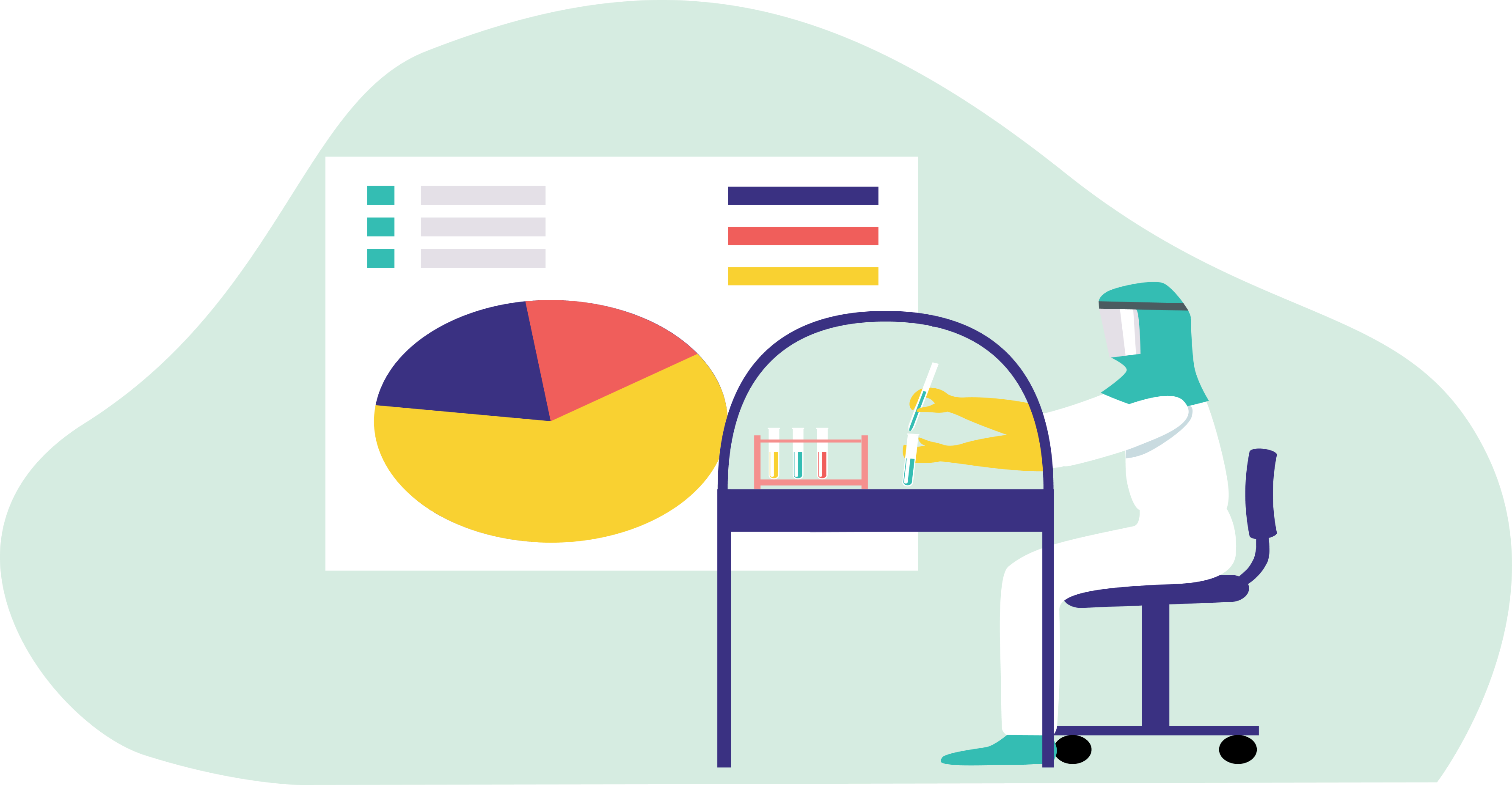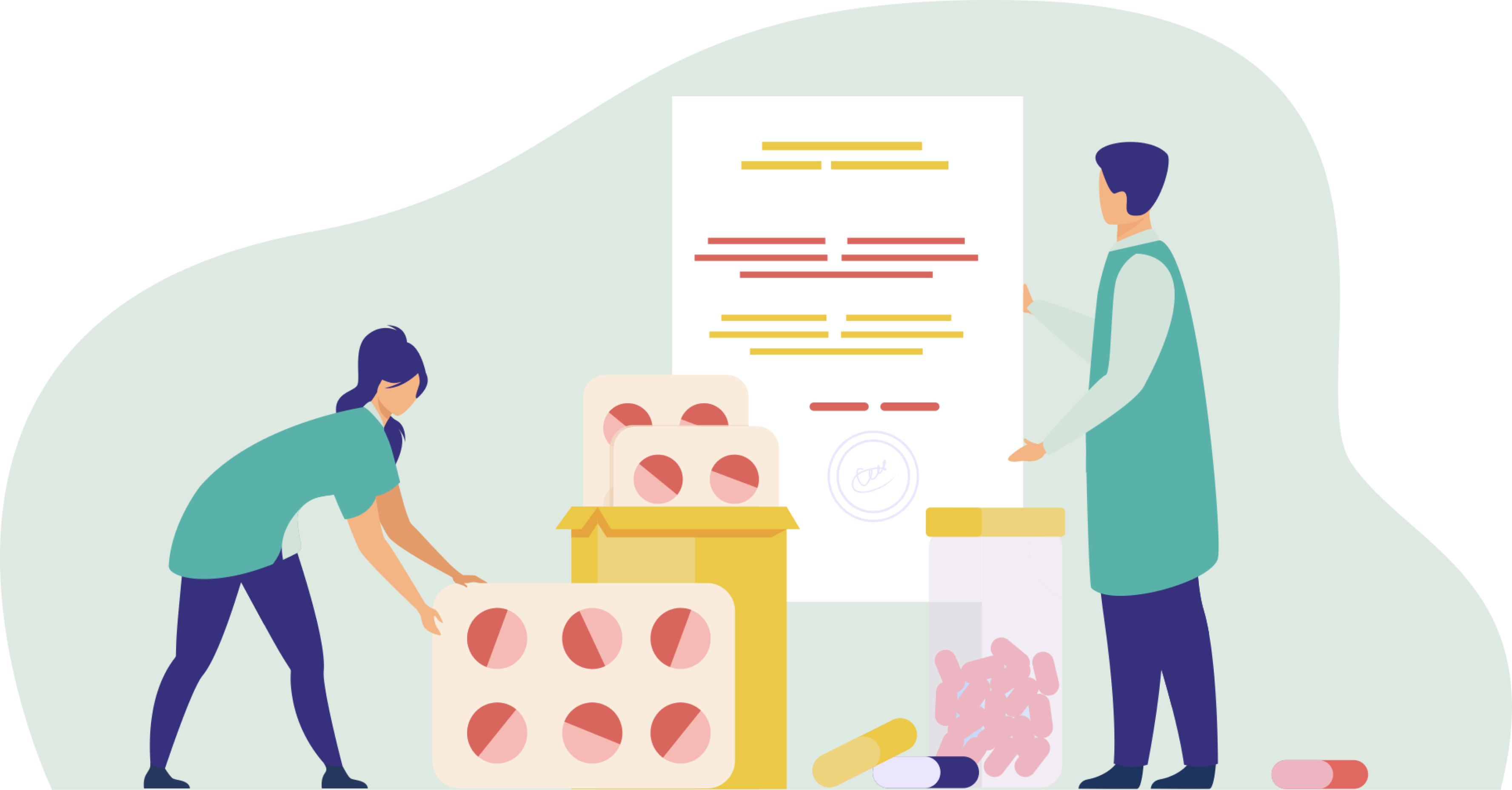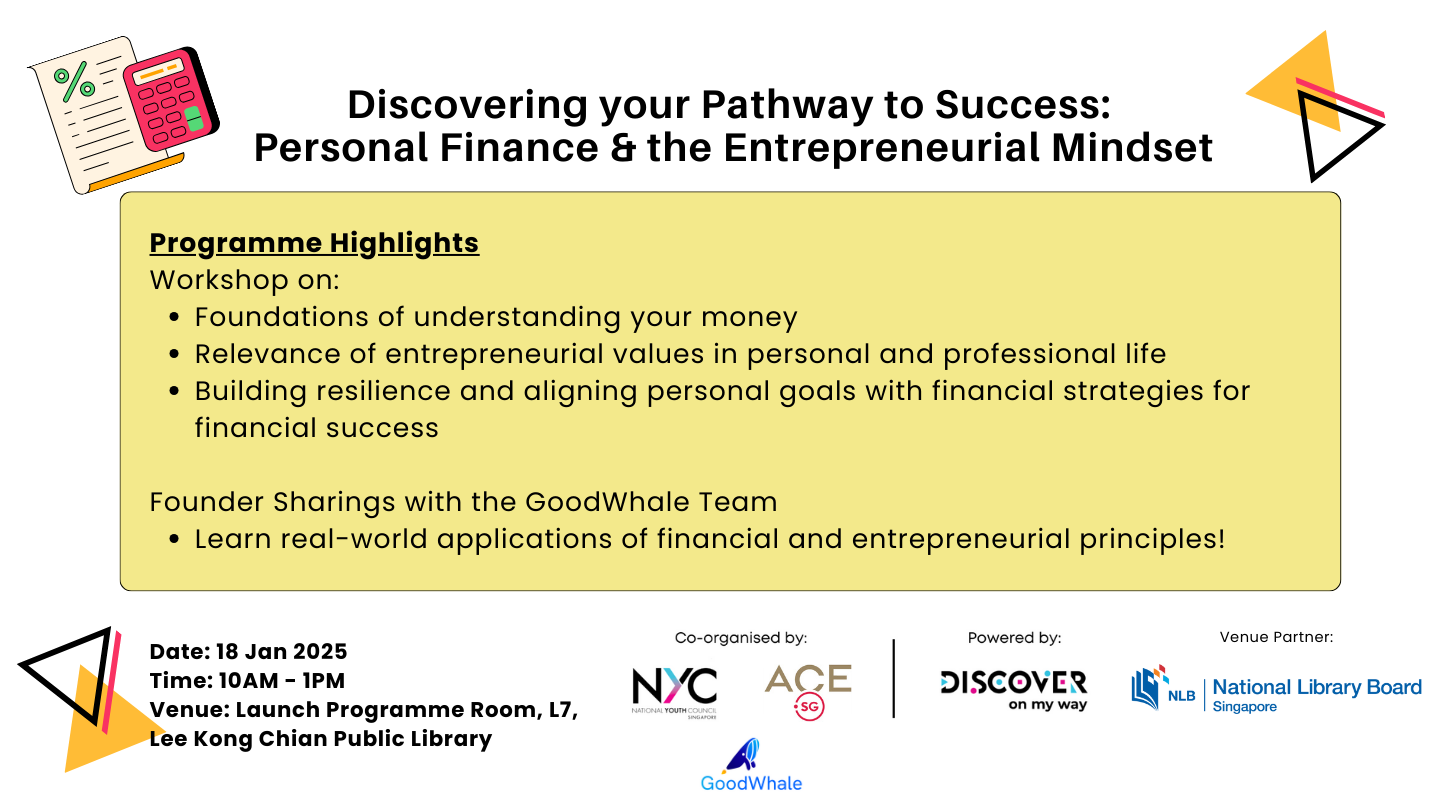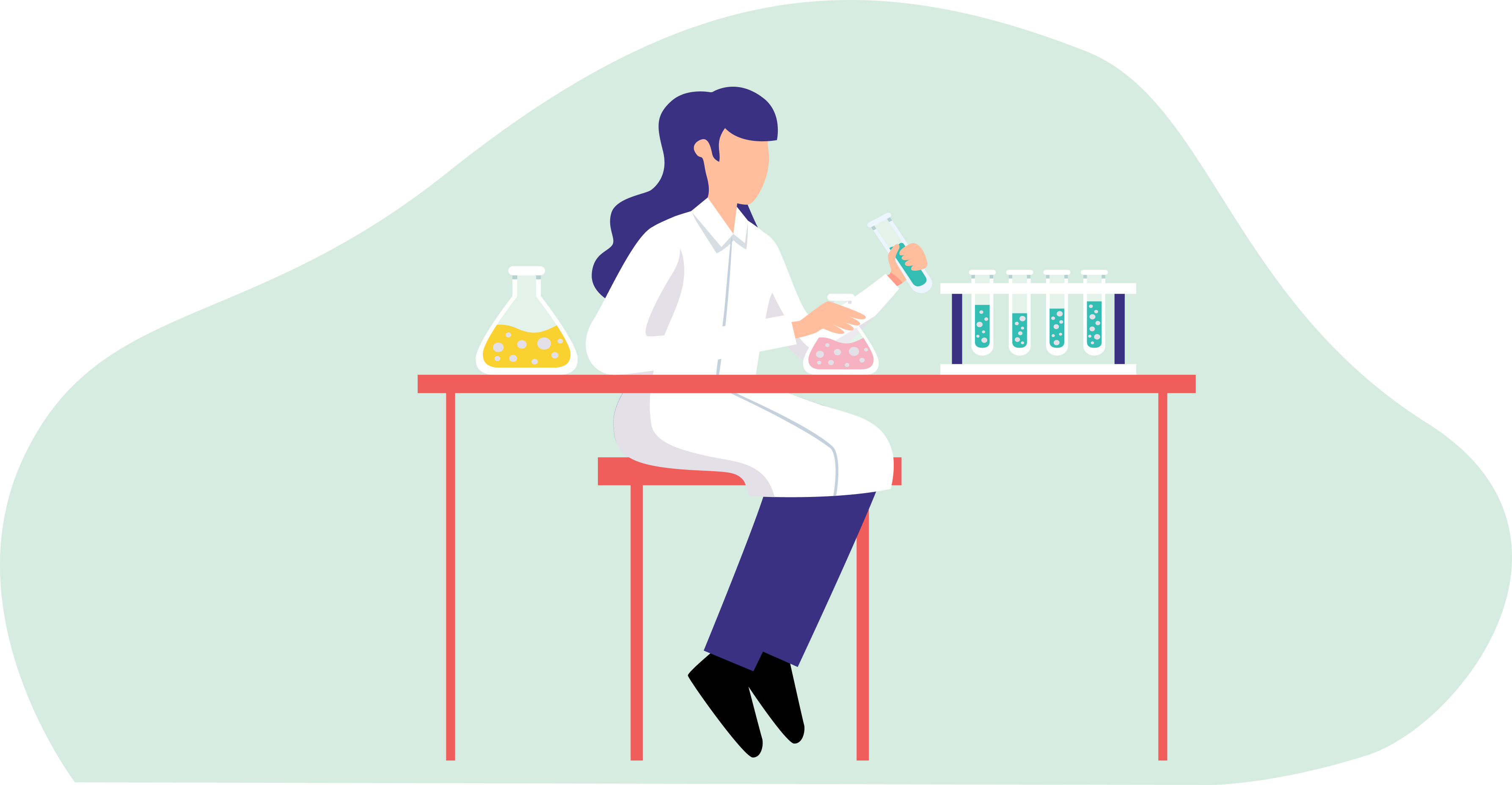
Biochemists study different chemical compounds and the processes that occur in living things. Through the study of plants, they can improve the nutritional value of food products and crops.
Biochemist Job Description
- Carry out laboratory investigations on chemical compounds.
- Design and conduct laboratory experiments to explore the effects of substances such as drugs, hormones, and nutrients on tissues and Biological processes.
- Check workflows (e.g. cell and tissue sample collection, storage, analysing) and test procedures.
- Record all observations, data, and experimental results for analysis and future reference.
- Take part in research conferences to present their findings to the scientific community or learn from other Researchers.
Note
Biochemists do a lot of analysis and research about the effects of drugs and food on Biological processes!
What you should know about Biochemist jobs in Singapore
Nature of Work
As Biochemists, you'll research how Biological systems work. You'll be part Scientist, part Detective, unravelling life at a molecular level.Key Advice
Keep your curiosity alive and stay updated on the latest in Science. Remember, teamwork and clear communication are your best buddies in this field.-
Entry RequirementsEntry Requirements
- Minimally a bachelor’s degree or equivalent in the Biochemistry field is required.
- Being familiar with practical work such as laboratory testing, safety procedures and data recording practices.
- Planning and analytical skills to record and extract data from results.
-
Possible PathwayPossible Pathway
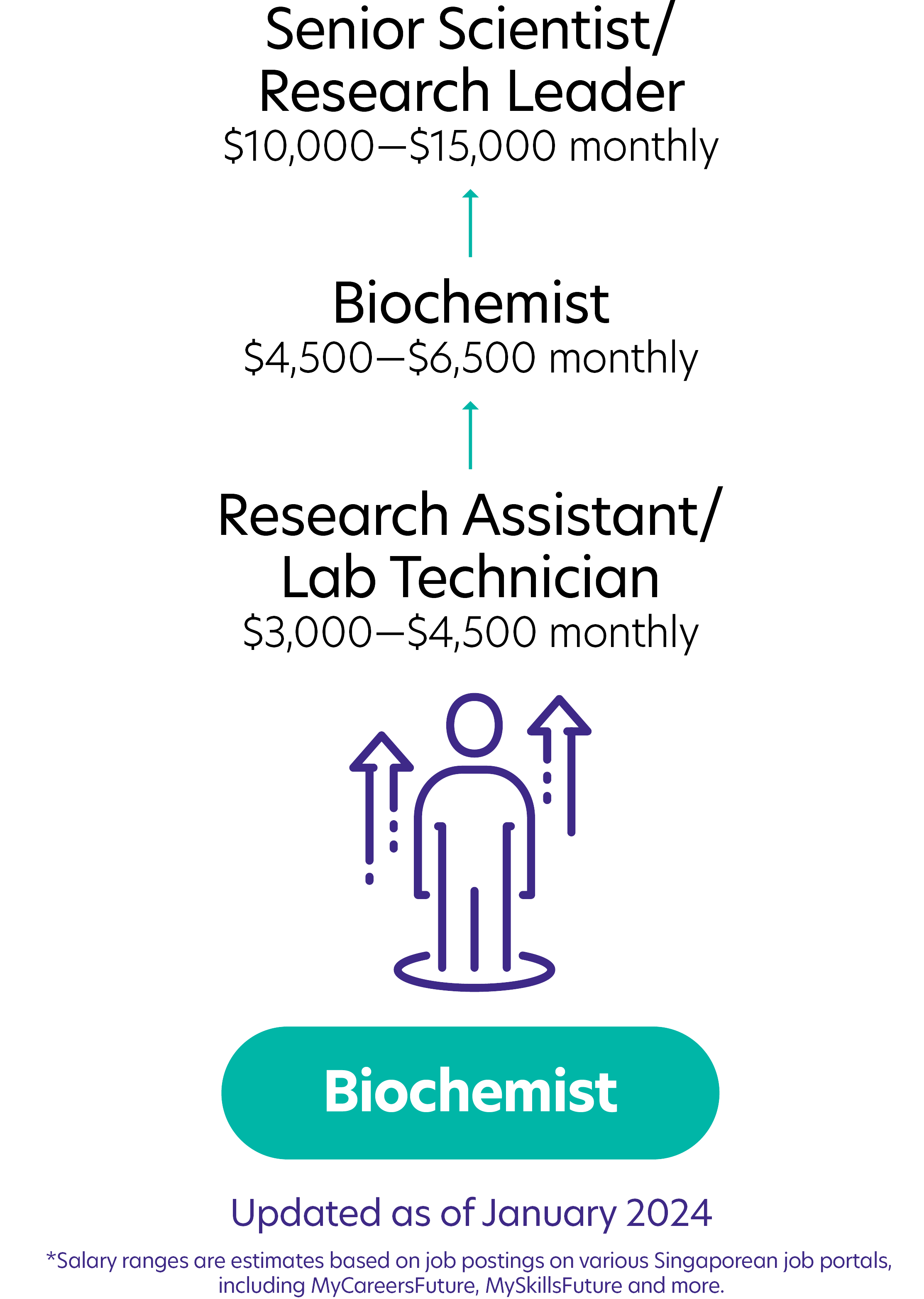
Skills you need to pursue a Biochemist career in Singapore
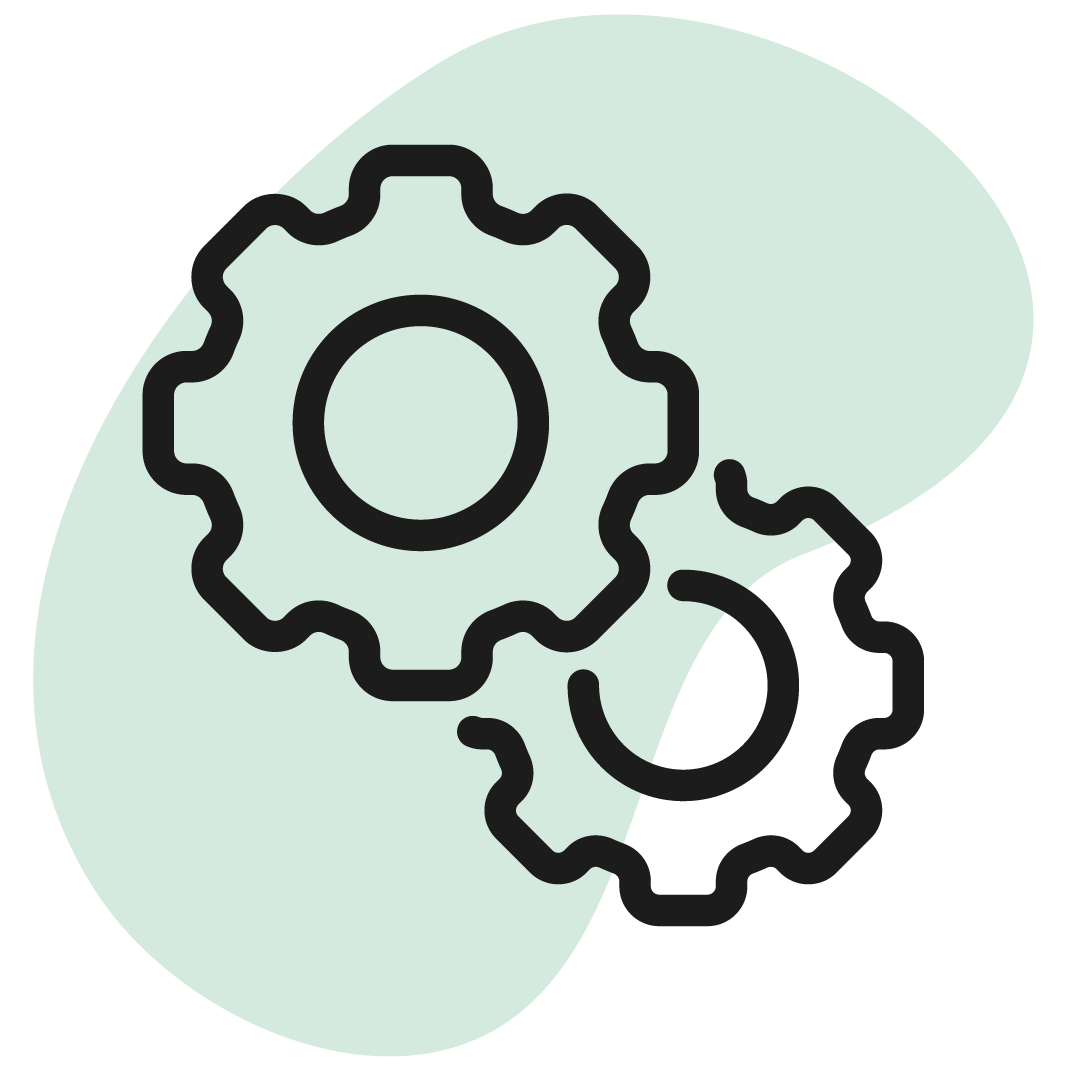 Hard Skills
Hard Skills
Science and Mathematics
Deep understanding of Biochemical processes, plus analytical skills for data interpretation.Quality Control Analysis
Conduct tests and inspections of products, services, or processes to evaluate quality or performance.Laboratory Instrumentation
Proficiency in lab techniques, such as Chromatography, Spectroscopy, and Electrophoresis.Active Learning
Involves understanding the implications of new information for both current and future problem-solving.Critical Thinking
Use of logic and reasoning to identify the pros and cons of alternate solutions, conclusions, or approaches.Problem-Solving
Identify complex problems and review related information to develop options and implement solutions.Related Job Roles
Explore Other Programmes
Browse AllYou have bookmarked your first item!
Find it in My Discoveries with insights on your interests!
